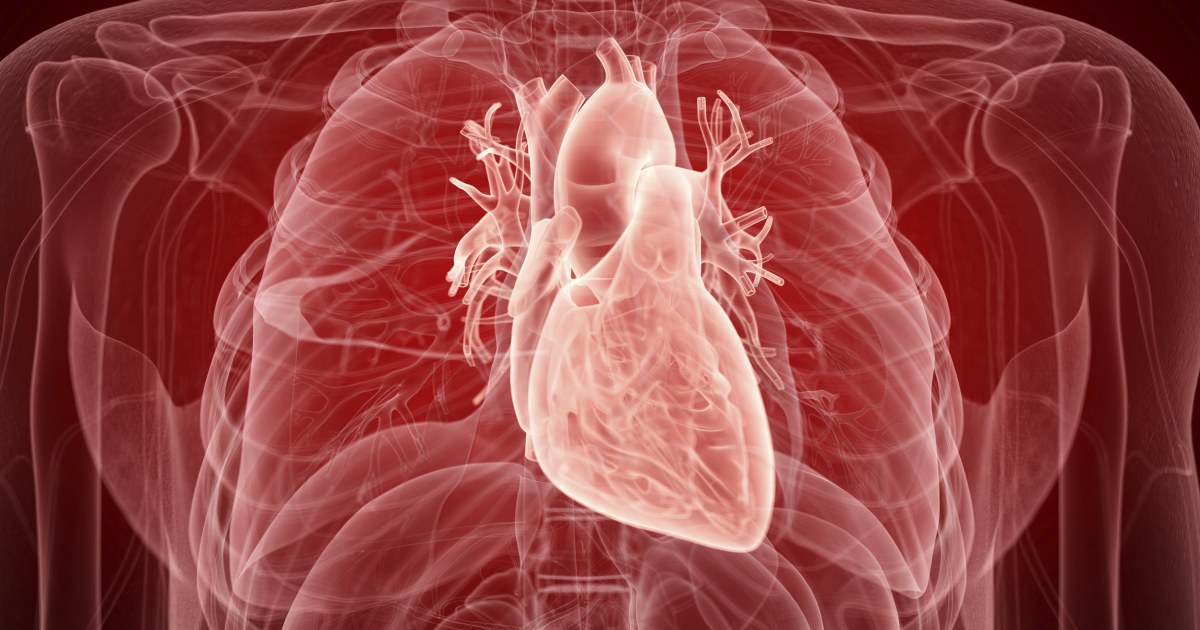Nearly 90% of adults over age 20 in the United States are at risk of developing heart disease, an alarming study suggests. This high number does not mean that the majority of adults suffer from heart disease, but it does indicate that many are at risk of suffering from it, even the youngest.
Researchers identified high-risk people using a newly defined syndrome that takes into account the strong links between heart disease, obesity, diabetes and kidney disease, according to research published Wednesday in JAMA.
The American Heart Association alerted doctors in October about cardiovascular renal metabolic syndrome (CKM), a disease that affects the body's major organs, including the brain, heart, liver and kidneys.
It is diagnosed in phases ranging from zero (no risk factors) to four (people with heart disease plus excess body fat, metabolic risk factors such as hypertension and diabetes, or kidney disease).
For the new study, researchers analyzed nearly a decade of data from more than 10,000 people participating in the National Health and Nutrition Survey (NHANES).
“We were extremely surprised that almost 90% of people met the criteria,” the doctor said. Rahul Aggarwal, co-author of the study and a cardiology fellow at Brigham and Women's Hospital at Harvard Medical School in Boston.
“It was much higher than we predicted in a database that included younger adults,” he added.
Of particular concern was the finding that nearly 50% of NHANES participants were in CKM stage 2, meaning they were at moderate risk because they had high blood sugar, hypertension, high cholesterol, or disease. chronic kidney disease, Aggarwal explained.
Just over a quarter of the group (people classified in phase 1) had a higher risk of heart disease due to being obese or overweight, with excess abdominal fat and fat around organs, but did not present specific symptoms.
The researchers found that 15% of participants had advanced disease, a number that remained fairly constant between 2011 and 2020.
“I think one of the biggest contributing factors to the fact that the percentage of people in advanced stages is not improving is obesity, which is very prevalent,” Aggarwal said, adding that 40% of people are obese and another 32% are overweight, according to body mass index calculations from the Centers for Disease Control and Prevention (CDC).
Being overweight increases a person's chances of suffering from hypertension, hyperglycemia, and high cholesterol, although some have metabolic risk factors, despite having a healthy weight.
Participants over 65 years old were more likely to be in an advanced stage than people between 45 and 64 years old. But being young was not as protective as one might assume. Only 18% of participants between 20 and 44 years old were in phase zero. That is, they had no risk factors.
According to Aggarwal, the new findings show that healthcare professionals must detect these conditions “before they cause side effects,” such as an increased risk of heart attack, heart failure and stroke. “We have to diagnose earlier and be more aggressive in treating people,” she added.
Making lifestyle changes, such as improving diet and increasing physical activity, can help protect against heart attack and stroke.
The results also show that “young adults, those under 45, are not as healthy as we thought,” he said.
Other experts were also surprised by the high CKM rates. “It is alarming that 90% of the population is at least in phase 1 and only 10% have no risk factors,” said Dr. Sripal Bangalore, director of invasive and interventional cardiology at NYU Langone Health in New York. .
He blamed these figures on the overweight and obesity epidemic: “There is a lot of work to do to reduce the rates of overweight and obesity,” he commented, “if we can do that, then it will reduce the number of people who progress to stage 2 and also move the needle down for the higher phases.”
Including kidney disease in cardiovascular disease risk assessments makes a lot of sense, said Dr. Adriana Hung, a kidney specialist and epidemiologist at Vanderbilt University Medical Center in Nashville, Tennessee.
“Kidney disease magnifies cardiovascular disease,” he said. “Some studies show that a patient has up to six times the risk of dying from a cardiovascular disease if they also have a kidney disease.”
The new, broader approach to heart disease is likely to help identify more people at risk, said Dr. Robert Rosenson, director of lipids and metabolism at Mount Sinai Health System in New York.
“The main message of this study should be that many common behaviors lead to an accumulation of diseases over time, which will impact quality of life and survival,” he said.
The large number of people with CKM in this study is related to overweight and obesity, insulin resistance and a diet high in fat and salt, Rosenson added.
People need to realize that it's not just the heart that is harmed by unhealthy diets and lack of exercise, he said, but lifestyle factors also impact well-being.

